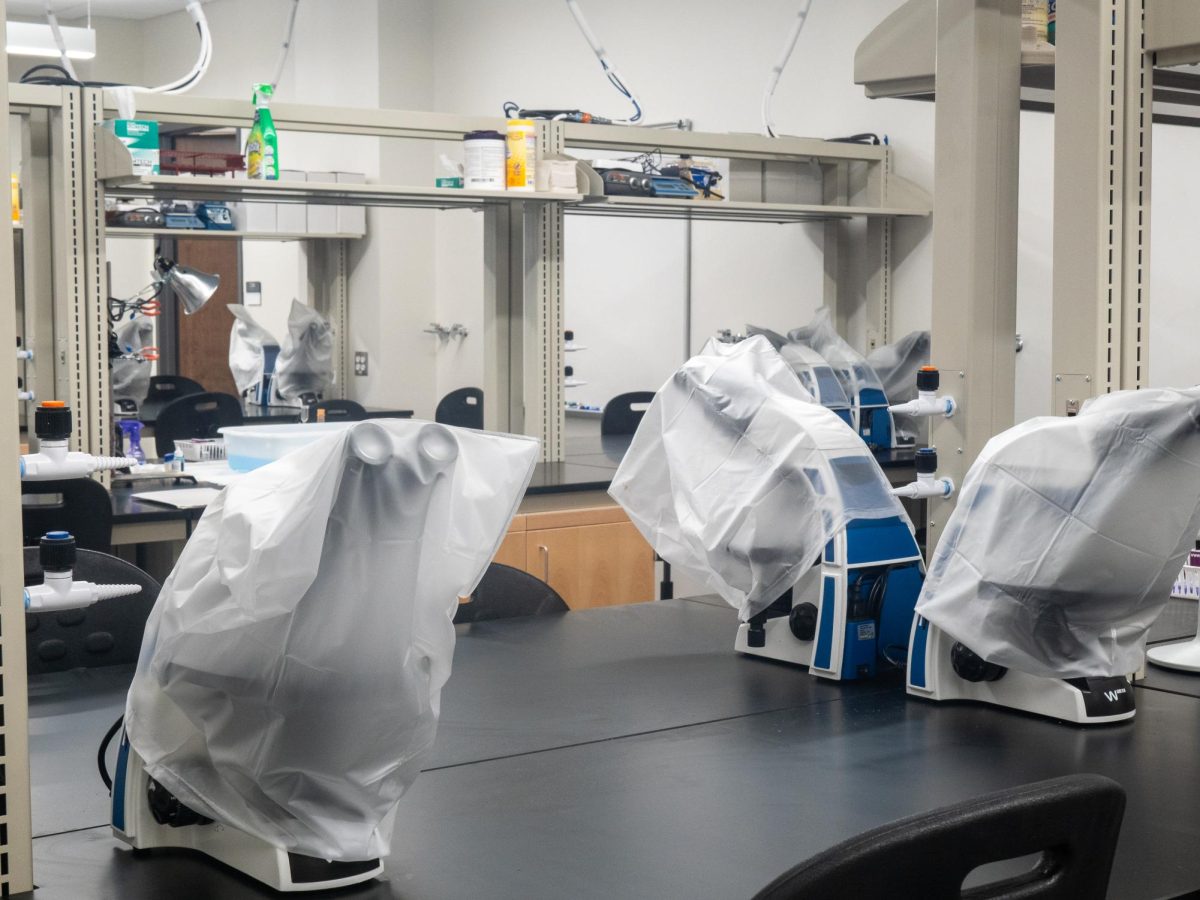On Feb. 26, UTSA announced unprecedented research expenditure figures for fiscal year (FY) 2023, according to the institution’s most recent data release. Witnessing a notable growth of 7.5%, the university’s expenditures surged from $141.7 million to $152.3 million.
The university attributes this growth to a combination of factors, including top faculty, who continue to be attracted and recruited, as well as internal strategies that bolster support for existing staff. These collaborative and innovative initiatives have played a pivotal role in driving UTSA’s research endeavors to new heights.
With contributions from important organizations like the Cybersecurity Manufacturing Innovation Institute, Brain Health Consortium, South Texas Center for Emerging Infectious Diseases and Texas Sustainable Energy Research Institute — which together accounted for 50.7% of the total expenditure — UTSA’s research centers drove $41.8 million in expenditures in FY 2023. Faculty and researchers also won 198 awards, bringing in $42 million in new funding for the university.
The university’s transformative research initiatives have been fueled by its strategic partnerships and transdisciplinary collaborations with local, regional and national entities. More research funding via seed grant programs and mentorship initiatives supports this commitment. In 2023, UTSA extended its research centers into fields like cloud computing, artificial intelligence (AI), brain health, cybersecurity and national security, promoting stronger partnerships and raising competitiveness for strategic research grants.
An important turning point was reached when San Pedro I, a facility that houses important research organizations and creative collaborations in downtown San Antonio, opened its doors in early 2023. The university strengthened its transdisciplinary research environment further with the merger of the Brain Health Consortium with other institutes and the appointment of David Brown as the executive director of the National Security Collaboration Center.
UTSA’s dedication to tackling societal issues and encouraging interdisciplinary cooperation is demonstrated by the founding of the Center for Public Opinion Research, a research interest group focused on the perspectives, opinions and priorities of residents in San Antonio. The university also established an Exploration and Planetary Science research group that centers around space travel, exploration and planetary science to promote further research collaboration. Its increasing prominence and influence in the research landscape are further validated by the university’s improved ranking in the Times Higher Education World University Rankings and eligibility for the National Research University Fund.
With $2.6 billion in economic contributions to the Texas economy in the previous year, the Jude Valdez Institute for Economic Development (IED) supports the growth of small and regional enterprises, innovators and entrepreneurs. The institute established the Jude Valdez Economic Development Excellence Fund to sponsor its multi-level business initiatives in memory of its founder, Jude Valdez ‘72. With the help of 42,231 business owners and small companies via a network of ten centers spread throughout South and West Texas, UTSA retained 7,934 jobs while creating 4,042 new ones.
The institute’s workshops also benefited 25,238 entrepreneurs, making it easier for them to obtain over $207 million in capital and produce $2.3 billion in new sales, contracts and exports in FY 2023. Associate Vice President of Innovation and Economic Development at UTSA, Rod McSherry, underlined the university’s critical role in the state’s economic development. Remarkably, U.S. Congressman Joaquin Castro secured significant federal funding for the IED to establish the UTSA Procurement Academy, which aims to teach entrepreneurs the abilities required to win government contracts. Moreover, UTSA’s dedication to regional economic growth and opportunity is further highlighted by its Association of Public and Land-Grant Universities designation as an Innovation and Economic Prosperity University.
The Office of Commercialization and Innovation (OCI) at UTSA made great strides in 2023, receiving 35 new invention disclosures that led to the filing of 14 patents and the optioning or licensing of nine technologies to different businesses. Notably, InRoad®, a bone graft product created in partnership with UTSA that minimizes risks and mimics the biological microenvironment of the bone, received FDA clearance from Osteogene Tech. Anson Ong and Daniel Oh, two UTSA faculty members, developed this product, which was introduced to the world as an osteoconductive bioceramic solution for dental applications. Additionally, OCI was licensed to Phage Refinery, a technology created by James Chambers and Philip Serwer of UT Health San Antonio to treat superbugs resistant to multiple drugs.
The startup First Flight Partners focuses on cutting-edge medical devices like endotracheal tubes for surgeries and emergency situations. It was founded in partnership with Teja Guda, the UTSA’s 2023 Innovator of the Year. Additionally, faculty teams led by UTSA took part in the NSF’s I-Corps national accelerator program, showcasing innovative solutions like Paul Rad’s Secure & Trustworthy AI and Leslie Neely and Adel Alaeddini’s AI-driven prediction system for caregivers of patients with autism. The director of OCI, Christine Burke, highlighted how dedicated UTSA is to bringing innovations to market quickly, promoting economic expansion, and raising living standards in Texas and beyond.
For more information, visit UTSA Today to stay up to date with UTSA’s future research expenditures.









